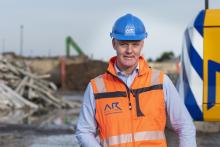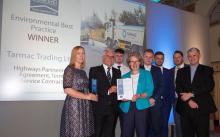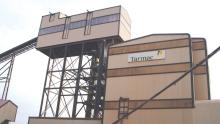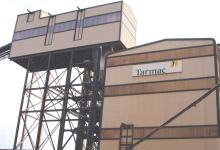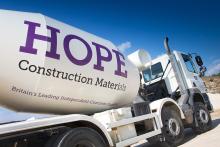Developed by Tarmac, TrenchFSMR technology creates a flowable structural material for reinstatement (FSMR) by using 100% of the material that comes from utility trench excavations.
Produced in accordance with the WRAP (UK recycling organisation) quality protocol, the system avoids utility arisings being sent to landfill, and cuts carbon by reusing materials and reducing the need to manufacture and transport reinstatement materials from off site
With only two operatives required to produce it, the system streamlines the reinstatement process and significantly cuts labour costs compared to traditional utility trench reinstatement. A three-month trial has successfully demonstrated that the system can also eradicate compaction issues that often lead to reinstatement failure.
Using self-compacting technology, the system avoids the need to use a wacker plate and improves occupational health by eliminating the risk of hand-arm-vibration syndrome (HAVs). By recycling and reusing materials, the reinstatement technology can also be used to support CEEQUAL (The Civil Engineering Environmental Quality Assessment and Award Scheme Manual) project accreditation.
The innovative technology was developed by Hannah Bettison, Tarmac account manager.
She said: “We successfully trialled TrenchFSMR on utility works in [County] Worcestershire undertaken by the West Midlands Gas Alliance, a partnership between Morgan Sindall and National Grid. The system helped to support National Grid’s commitment to reducing volumes of utility trench arisings sent to landfill.”
Geoff Fawkes, Tarmac national business development manager, said: “TrenchFSMR is the next step in providing contractors and utility clients with a quick, cost-effective recycling system that can immediately reprocess trench arisings to provide a material that can be used on the same site. Not only does this technology reduce site labour and improve cost-efficiency, it also makes the reinstatement process much quicker, helping to minimise any disruption to the public.”
Les Turner, head of Ssupply chain utility services, Morgan Sindall said: “We started working with Tarmac to develop this project over 12 months ago. To have it now in production is a bonus and demonstrates how we can work with our supply chain to find innovative solutions. Not only do we have a product that is 100% recycled, the trials at Worcester have shown that its use will be fundamental in reducing defects in both highways and footpaths, thus eliminating the cost of re-work and disruption to the public. We are now using it in [the city of] Nottingham and planning further use around the Midlands [area of England]. Initial reaction from West Midlands HAUC and local councils, where it is being used, has been highly supportive and enthusiastic.”

